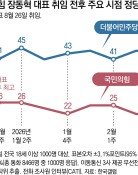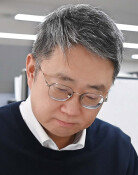A Meat Lover, Sejong Had Obesity and Diabetes
A Meat Lover, Sejong Had Obesity and Diabetes
Posted August. 22, 2005 03:11,
A newly submitted doctorate dissertation on the medical changes in the Joseon Dynasty of Korea (1392-1910) is drawing attention by studying the diseases and therapies that the kings of the dynasty had and received. With the thesis named, A Study on the Medical History of Joseon Dynasty through the treatments for Kings, Kim Jeong-sun, a medical history major at the medical school of the Seoul National University, is slated for a doctorate at the end of this month.
According to the thesis, King Sejong the Great (1397-1450), who invented the Korean alphabet of Hangeul, loved meat so much that he did not have a meal without it when young. Disliking exercises, however, he had a corpulent body. Seeing that he drank more than a jar of water a day around the age of 35, he probably had diabetes, Kim wrote.
Munjong (1414-1452) suffered from tumors since he was the crown prince. He passed away before he reached 40 due to aggravated tumors, since the only treatment he could get was sticking a plaster or a leech on them. Seongjong (1457-1494) suffered heatstroke every summer and sometimes lapsed into unconsciousness.
Under the reign of Yeonsangun (1476-1506), who is notorious for his immoral conduct, his doctors presented the king insects and snakes, which were supposed to be good for virility, to pander to his sexual appetite. It also is recorded that Jungjong (1488-1544) once drank human excrement water to alleviate fever.
After the Japanese Invasion (1592-1598), acupuncture and moxibustion developed enough to be practiced on Kings. Gwanghaegun (1575-1641) who had a nervous disorder and an eye disease was treated more by acupuncture than by internally-taken medicine. Yeongjo (1694-1776) was keenly interested in his physical health. Believing that his health derived from energy of ginseng, he ate some 20 roots of ginseng at the age of 72. Thanks to this careful healthcare, he lived the longest life among the Joseon Kings.
Kim said in his thesis, The therapies for Joseon Kings affected the medical progress in the era, adding, Ordinary people took the treatments of the Kings doctors as examples to follow.
wing@donga.com




![[단독]폴란드, 韓 해군 최초 잠수함 ‘장보고함’ 무상 양도 안받기로](https://dimg.donga.com/c/138/175/90/1/wps/NEWS/IMAGE/2026/02/27/133437397.1.jpg)

![“20대엔 28개, 80대엔 15개… 노년기 치아상실 피하려면”[베스트 닥터의 베스트 건강법]](https://dimg.donga.com/c/138/175/90/1/wps/NEWS/IMAGE/2026/02/27/133437590.4.jpg)
